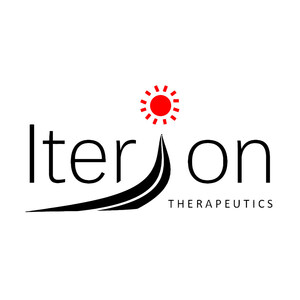HOUSTON, May 16, 2023 /PRNewswire/ -- Iterion Therapeutics, a leading biopharmaceutical company dedicated to the development of innovative treatments for cancer, announced today its collaboration in a Phase 1 clinical trial for tegavivint in patients with relapsed or refractory c-Myc-overexpressing large B-cell lymphomas. The first patient has been enrolled to this National Cancer Institute-funded study, which is being conducted at The Ohio State University Comprehensive Cancer Center, Arthur G. James Cancer Hospital and Richard J. Solove Research Institute in Columbus, Ohio.
Diffuse large B-cell lymphomas (DLBCL) are a type of Non-Hodgkin lymphoma (NHL) that originates from white blood cells. It is estimated that each year there are more than 20,000 patients diagnosed with DLBCL resulting in greater than 7,000 deaths annually. In a subset of DLBCL, the oncogene c-MYC is overexpressed through genetic mechanisms. Patients with c-Myc-overexpressing DLBCL are less likely to respond to currently available therapies, with an overall survival (OS) rate of 30% at 2 years compared to 76% in c-MYC negative patients. Patients with relapsed/refractory c-MYC-overexpressing DLBCL represent a significant unmet clinical as their prognosis is particularly poor with very limited effective treatment options.
Tegavivint is a first-in-class small molecule inhibitor of Transducin beta-like protein 1 (TBL1), that has demonstrated safety, clinical and pharmacodynamic activity in a Phase 1 study of patients with desmoid tumors. TBL1 is an exchange adaptor protein known to regulate protein stability and acts as a master regulator of the Wnt-signaling pathway by binding to nuclear beta-catenin to protect it from degradation and promote its downstream transcriptional activity. TBL1 is highly expressed in DLBCL compared to normal B cells, with expression inversely correlated with OS in DLBCL patients treated with standard first-line treatment. Pre-clinical studies have shown tegavivint promotes DLBCL cell death in vitro and in vivo through modulating stability of key oncogenic proteins, including c-Myc.
"TBL1 and MYC have long been therapeutic targets of interest in DLBCL" states Lapo Alinari, MD, PhD, a hematologist with the OSUCCC – James and assistant professor at The Ohio State University College of Medicine. "Tegavivint provides the first opportunity to treat DLBCL patients with a targeted therapy toward TBL1 and the pre-clinical data suggests that by doing so, we can also impact MYC protein levels resulting in anti-tumor activity".
The Phase 1 dose-escalation study will enroll up to 20 patients with relapsed or refractory c-Myc-overexpressing DLBCL, who have failed at least two lines of prior treatment. The primary endpoint for the study will be to assess safety, measure dose limiting toxicities (DLTs), and define a recommended phase 2 dose (RP2D). Patients will also be followed for clinical responses, pharmacokinetics and changes in pharmacodynamic markers.
"While there have been significant advances in treatment of DLBCL, the patients targeted in this study are known to have poor prognosis and poor response to the current standard of care", states Casey Cunningham, MD, Chief Medical Officer at Iterion. "The pre-clinical data suggests that tegavivint may provide a therapeutic option where one does not currently exist"
For more information about the Phase 1 clinical trial of tegavivint in patients with large B-cell lymphomas, please visit ClinicalTrials.gov using the identifier NCT05755087. This trial is funded by the National Cancer Institute with additional support from Iterion, manufacturer of the study drug, Tegavivint. Patients on this study receive the study drug at no cost while on the clinical trial.
About Iterion Therapeutics
Iterion Therapeutics is a clinical-stage biotechnology company developing novel cancer therapeutics. The company's lead product, tegavivint, is a potent and selective small molecule that binds to Transducin Beta-Like Protein 1 (TBL1) in the nucleus, inhibiting nuclear beta-catenin signaling and oncogenic activity. Increased expression of beta-catenin and TBL1 are associated with metastasis and poor prognosis in a broad range of tumor types, making TBL1 an emerging, high-value cancer target of interest. Iterion is currently advancing multiple clinical programs investigating tegavivint in cancer indications where nuclear beta-catenin overexpression is a known factor. These include Iterion-sponsored programs in hepatocellular cancer (HCC), as well as investigator-sponsored programs in acute myeloid leukemia (AML), non-small cell lung cancer (NSCLC), and solid tumors. Iterion is the recipient of an up to $18.9 million Product Development Award from the Cancer Prevention and Research Institute of Texas (CPRIT). For more information on Iterion, please visit https://iteriontherapeutics.com.
SOURCE Iterion Therapeutics

WANT YOUR COMPANY'S NEWS FEATURED ON PRNEWSWIRE.COM?
Newsrooms &
Influencers
Digital Media
Outlets
Journalists
Opted In





Share this article